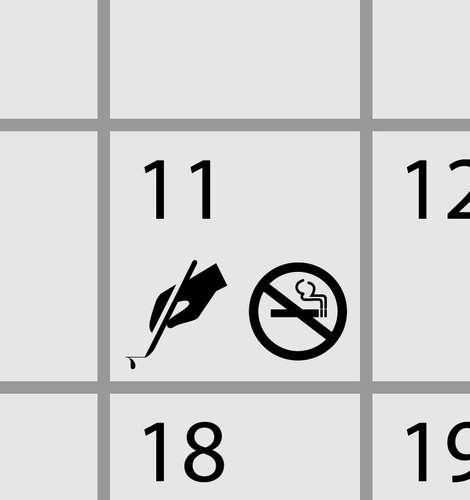Cigarette smoking increases the risk of complications in patients undergoing surgery and even increases risk of peri-operative death. Postoperative respiratory complications and poor wound healing in particular tend to be higher in smokers compared with nonsmokers. Therefore, it is preferable that patients planning to undergo surgery do not smoke.
Since Health Canada estimated that in 2010, 4.8 million (17% of) Canadians 15 years or older were smokers. Health implications and costs can be significant.
A systematic review of 8 trials showed that preoperative smoking interventions are effective for changing smoking behavior after surgery and may reduce postoperative morbidity. Several of these trials show that even short-term preoperative smoking cessation interventions, particularly those started >4 weeks preoperatively, can reduce postoperative complications by up to 20% to 34%.
Recent study
Latest findings of a successful intervention trial was published in the medical journal Anesthesia & Analgesia. A randomized controlled trial was conducted at St. Joseph Hospital in London, Ontario, Canada, which is affiliated with the University of Western Ontario. Patients seen in the pre-admission clinic at least 3 weeks preoperatively were randomized to either the control group (84 patients) or the intervention group (84patients).
The control group received no specific smoking cessation intervention. The intervention group received brief counseling by the preadmission nurse, brochures on smoking cessation, were referral to the Canadian Cancer Society’s Smokers’ Helpline, and also got a free 6-week supply of transdermal nicotine replacement therapy.
The rate of smoking cessation was confirmed by exhaled carbon monoxide breath test. Perioperative complications and smoking status at 30 days postoperatively were also assessed.
At follow-up, smoking cessation was reported in 22 patients (28.6%) in the intervention group compared with 8 patients (11%) in controls, showing that the intervention had successfully encouraged more than double the number of patients to quit.
As well, the intervention group was ready to be discharged earlier from the post-anesthesia care unit (PACU) after surgery.
Morley-Forster, St. Joseph’s anesthesiologist and an associate scientist at Lawson Health Research Institute, says “Surgery is a teachable moment for patients. We can have a significant impact on motivating people to stop smoking at this critical time if they are given the right support.”




